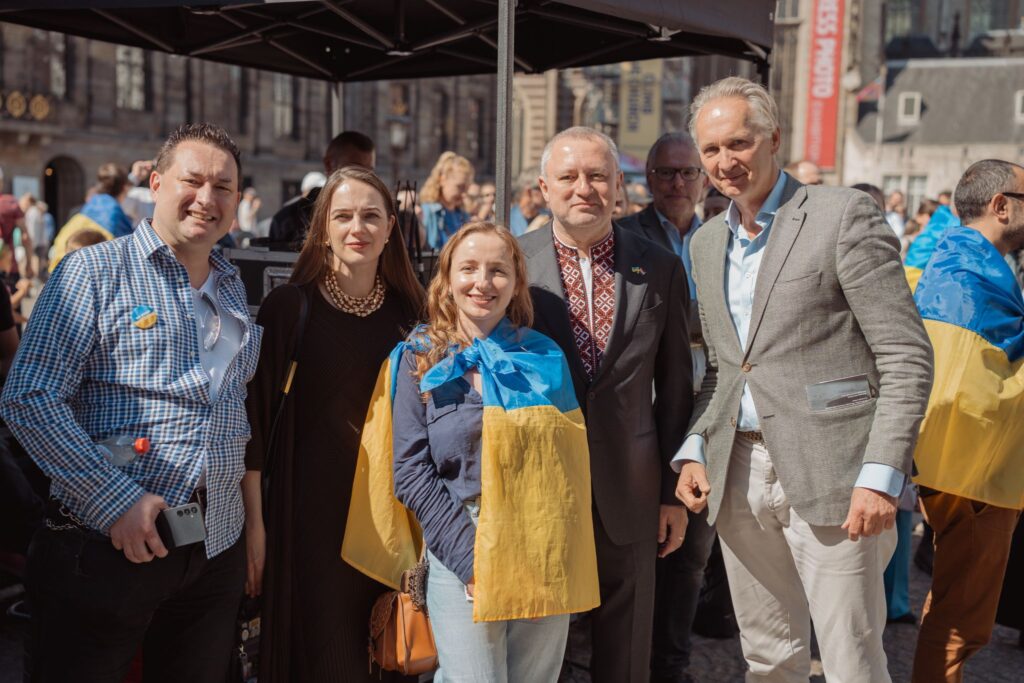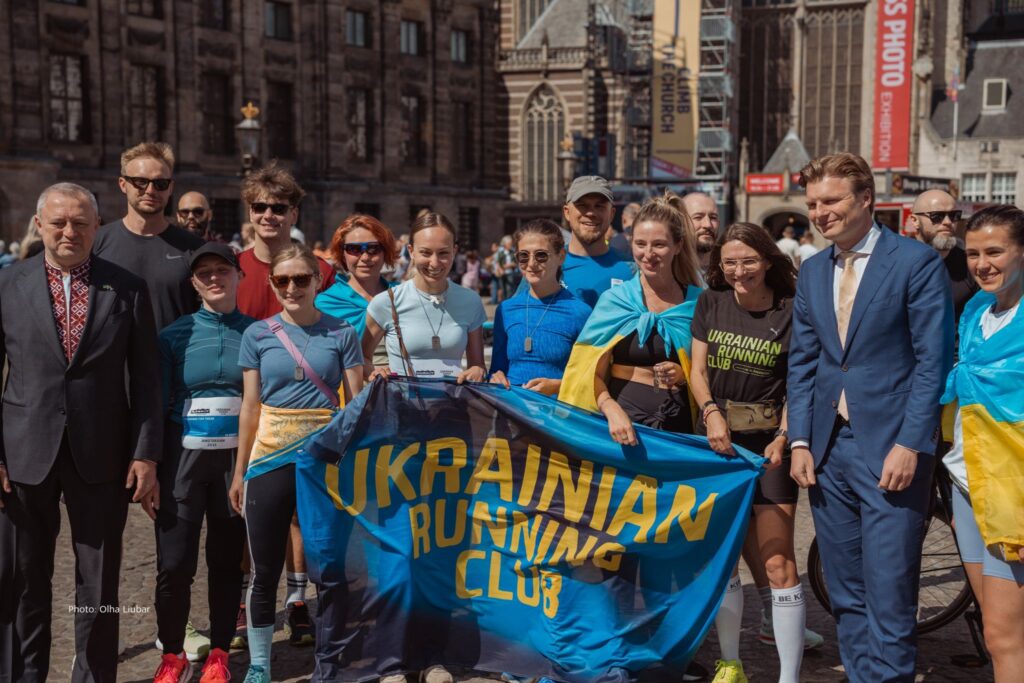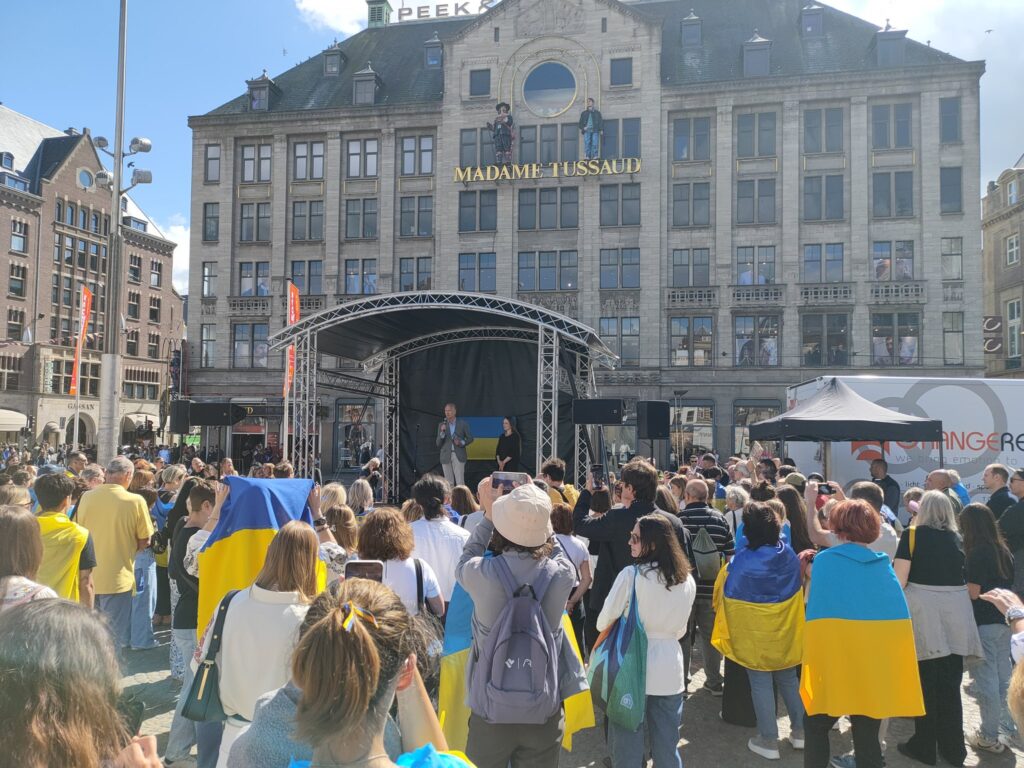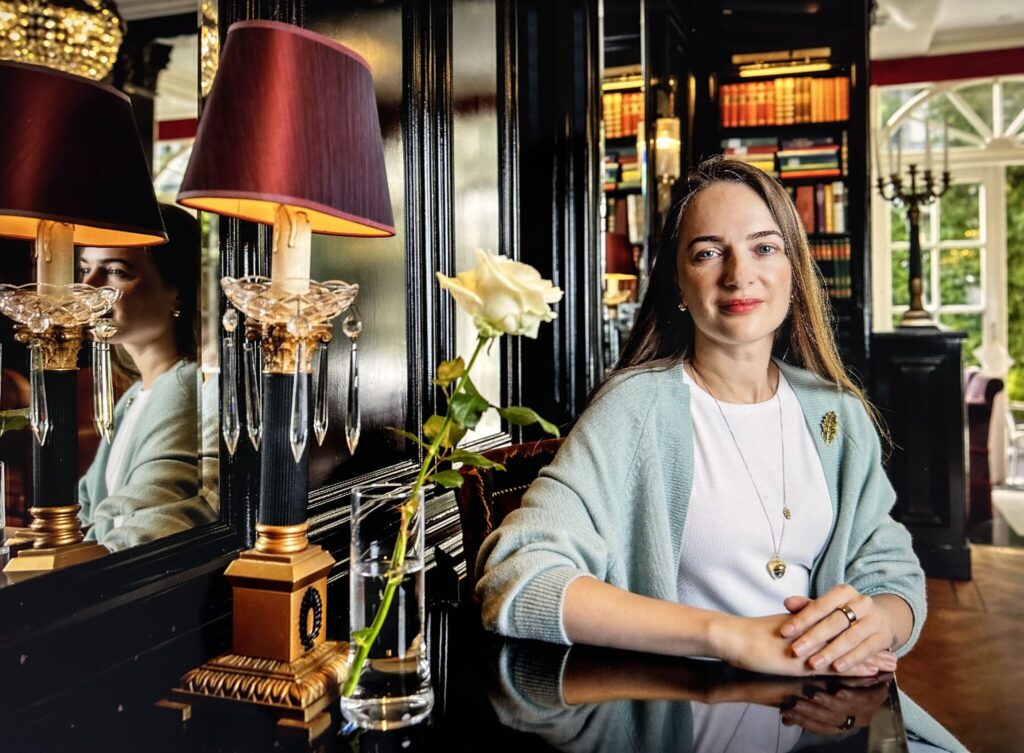Oleksandra Matviichuk visited the Netherlands on an advocacy trip and spoke at Amsterdam’s main square on Ukraine’s Independence Day
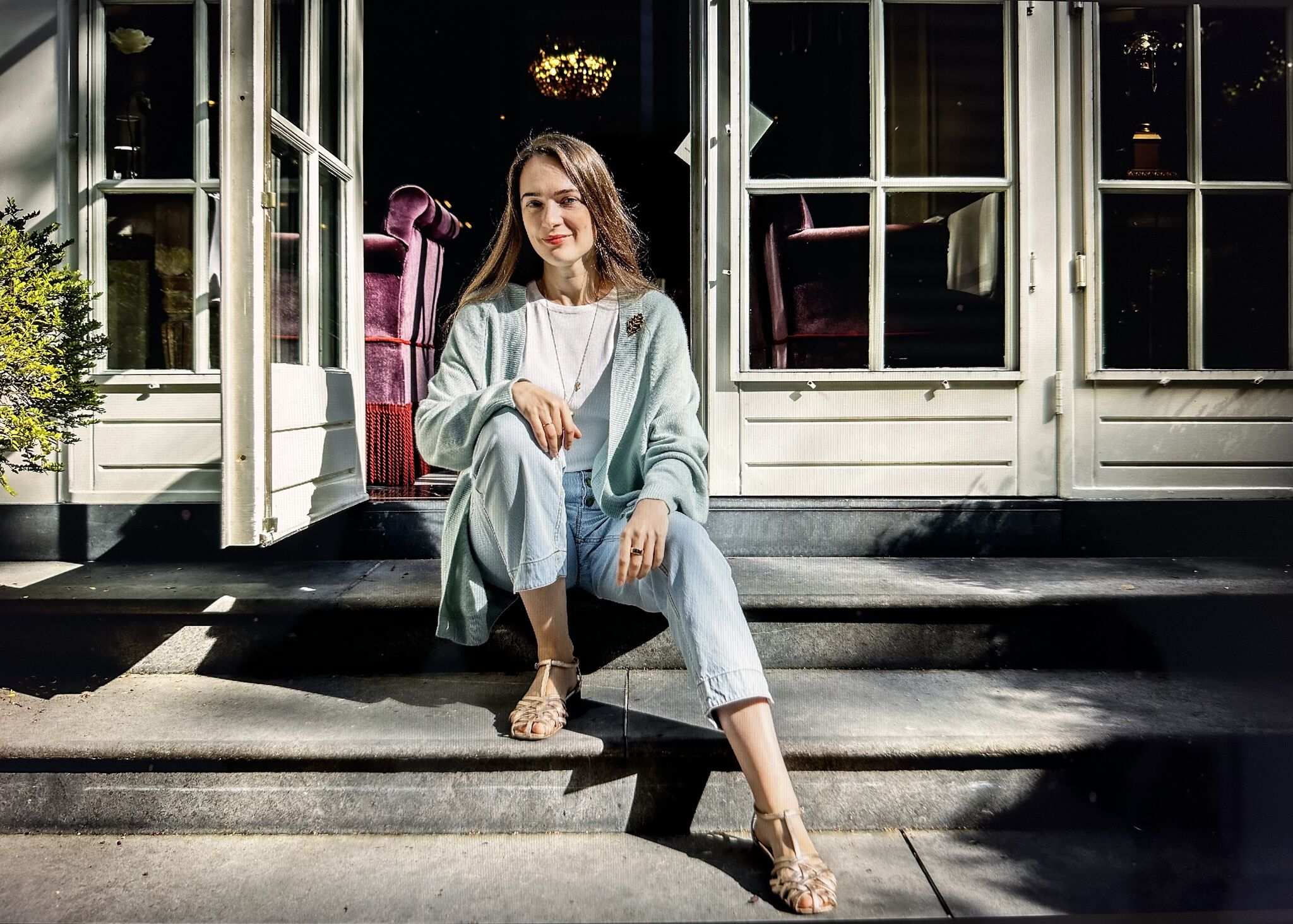
On August 24–25, Oleksandra Matviichuk, the head of the Center for Civil Liberties, visited the Netherlands with the advocacy mission to meet with the local Ukrainian community for the Independence Day celebrations.
On August 24, at the grand hall of De Balie in Amsterdam, Matviichuk delivered a lecture titled “The Fate and Role of Citizens in War.” De Balie is a well-known cultural and discussion center, widely recognized as a platform that invites critical discussion and cultural exchange for writers, politicians, activists, and artists from all around the world. It has built a reputation as a progressive, socially engaged, and intellectually stimulating space.
Before the speech of the head of the Center for Civil Liberties, a short introduction was given by Jaap Scholten, one of the leaders of Protect Ukraine—the initiative that coordinates the collection as well as the delivery of critical non-military supplies to Ukrainian army units. Matviichuk herself is an ambassador of Protect Ukraine, actively working on raising awareness about the war in Ukraine among the population of the Netherlands and building connections between the donor community and Ukrainian civic initiatives.
Later on, Matviichuk, as a human rights activist, took part in an Independence Day rally at Dam Square in Amsterdam, joined by Ambassador Andriy Kostin, Minister of Defence Ruben Brekelmans, Member of the European Parliament Thijs Reuten, writer and civic activist Jaap Scholten, as well as numerous local Ukrainian community leaders and activists. She also held several meetings with prominent Dutch donor and political circles.
In addition to public events, Matviichuk gave a series of interviews to Dutch media outlets, among them Het Parool, Algemeen Dagblad, De Morgen, Trouw, and others. This media presence gives an opportunity to explain to a foreign audience what negotiations on possible territorial deals or a “freezing” of the front truly mean for the civilian population.
Among its goals, the visit aimed not only to inform the Dutch public about the humanitarian consequences of the war, but also to strengthen ties between Ukrainian civil society institutions and European partners. Organizers and partners of the events continue to emphasize that such initiatives play an important role in raising awareness and mobilizing support both within society and among influential donors.

